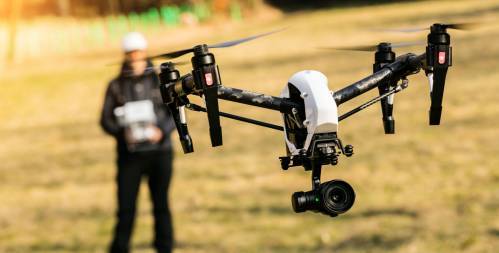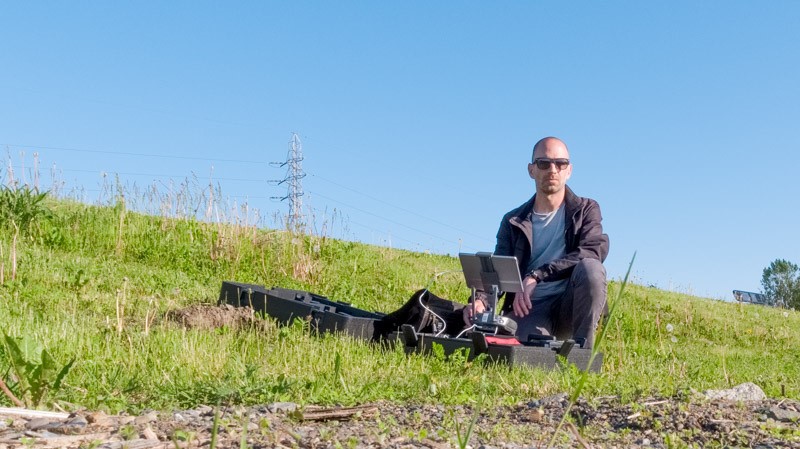Students at NSCAD (Nova Scotia College of Art and Design) University will be learning how to legally operate drones and use it in visual arts practice, capturing photos of infrastructure, forests or oceans.

It’s part of a newly launched drone photography class this summer in Halifax.
Drones, also known as remotely piloted aircraft systems, are unmanned aircraft systems that can be remotely controlled or fly autonomously through software-controlled flight plans embedded in their systems.
These aircraft can have the capability of capturing rich and dynamic aerial images and video.
According to NSCAD, it is the first university-credited class in a visual arts program that is Transport Canada compliant.
“This is an emerging field, so the people who get in now are really kind of getting in on the ground floor,” said Adrian Fish, associate professor and chair of Media Arts at NSCAD and course creator.

Get daily National news
“I just think it’s really exciting to put technology into student’s hands and to see how it evolves and to continuously be surprised by how students might use certain technology,” he added.
READ MORE: Canadians flying larger drones must pass exam, get pilot’s certificate: new rules
The class was designed in collaboration with the Canadian Drone Institute (CDI), based in Ontario, that offers online and in-person training courses and certification.
About a dozen students will successfully complete the Transport Canada Ground School certification, and will be able to legally operate drones under NSCAD’s Special Flight Operating Certificate.
“I think the advantage to the students is that now they can learn what the new regulations are and learning how to be what we call compliant with those new regulations,” said Greg Davis, founder and CEO of CDI.

The new regulations, launched by Transport Canada starting June 1, regarding drone pilot licensing, means that anyone flying a drone over 250 grams will need to get their basic or advanced drone pilot certificate to avoid serious fines and penalties.
Fines for individuals can go up to $3,000 if a drone operator risks putting aircraft and people at risk.
“Just imagine them going out in the backyard and taking that drone up to 10 to 12,000 feet, which now you’re into commercial airspace,” Davis said.
“No knowledge of regulations and you’re just inviting catastrophe, fortunately, nothing has happened yet,” he added.
READ MORE: Police probe drone flying ‘dangerously close’ to aircraft at Peterborough Airport
According to CDI, the North American drone industry continues to expand and grow in both the U.S. and Canada. “In fact, by 2021, BI Intelligence has predicted that drone sales will be more than $12 billion.”
Davis said in a news release that “many industries have begun to customize drone technology and develop solutions specific to their operations. This includes surveying, mapping, investigating, videography, image taking, surveillance and more.”
Transport Canada has estimated there are 193,500 drones in the country though there could be more.
“You look at at a lot of the economic drivers today, one of them is artificial intelligence and right behind that is drone technology,” said Davis, who believes that being a certified drone pilot can open doors to career opportunities.
WATCH: Pilot reports spotting drone while landing at Calgary airport

Fish agrees students will be learning new technical skills that can benefit them career-wise, but his main goal is to introduce drones as a tool in visual arts practice for photographers and media artists.
“One of the jobs of the artist is to kind of invite a new way to look at the world or a new way to think about the world or to offer a unique perspective about the world or the nature of art,” Fisher said.
- ‘Alarming trend’ of more international students claiming asylum: minister
- Canadian government’s satellite deal has Tories calling for Elon Musk involvement
- Justin Trudeau headed to UN Summit of the Future amid international instability
- Activists call for Boogie the monkey to be removed from Ontario roadside zoo









Comments